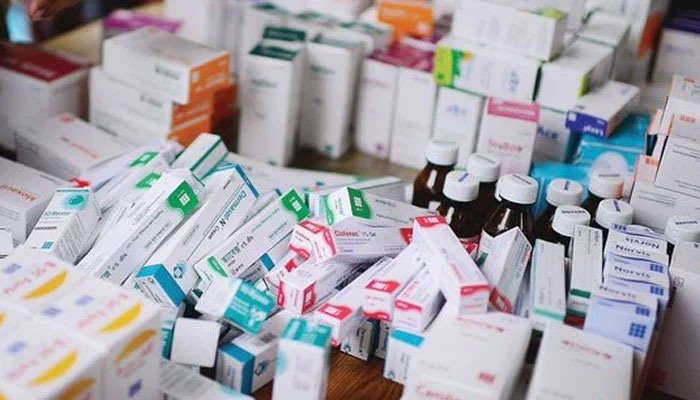FDA-approved cardio supplies for cardiology hospitals okayed
LAHORE: The Specialised Healthcare and Medical Education Department (SHC&MED) has approved procurement of Food and Drug Administration’s (FDA-approved) cardio supplies for cardiology hospitals in the province.
While the new policy has been approved to ensure quality healthcare to the heart patients, it excluded all other suppliers of European and Chinese products on one hand, and is feared to significantly decrease the healthcare coverage to the cardiac patients due to reduced supplies at higher cost in the existing budget on the other.
The prices of FDA brands of Balloon Catheter range between Rs14,500 and Rs17,000 whereas other Conformité Européenne (CE) marked products, duly registered by Drug Regulatory Authority of Pakistan (DRAP), range between Rs9,000 and Rs10,000.
‘This product alone can consume an extra budget of Rs400 million,’ claimed sources while saying the extra amount spent on costly products will affect the healthcare coverage in comparison to the load of patients requiring heart surgeries. It may potentially lead to a significant decrease in the number of cardiac surgeries and procedures at government hospitals, thus affecting the healthcare of millions of people in Punjab.
The FDA-approved cardio products will be used at cardiology hospitals in Lahore, Faisalabad, Rawalpindi, (Wazirabad) Gujranwala, Sahiwal, Multan, Bahawalpur, Dera Ghazi Khan, besides cardiac centres/units in other tertiary care hospitals in the province.
Previously, these conditions didn’t exist in past tenders by Punjab, Sindh, Khyber Pakhtunkhawa and Balochistan. Similarly, the Sehat Card in KP or the now-discontinued Sehat Sahulat Card in Punjab did not require these specifications for cardio supplies.
A participant present in the pre-bid meeting claimed that the condition of FDA-approved supplies excludes all other DRAP-approved suppliers, who have been providing supplies to other provinces and private hospitals across Pakistan, from the competition. While there are nearly 40 suppliers, which are supplying European and Chinese products in the country, he said, it is expected that only four American companies are likely to qualify under the FDA-approved condition.
The cardiology experts expressed the apprehension that relying solely on four suppliers for such critical supplies could pose a risk, especially considering potential delays due to unexpected import restrictions due to unavoidable circumstances or in payments by the government.
A statement by the DRAP-approved suppliers, affected by the new policy, says that the additional criteria such as past experience supplying teaching hospitals in Punjab may further limit competition and exclude new entrants from participating in the tender process. ‘Requiring suppliers to deposit additional earnest money for a new tender may cause further disadvantage to smaller suppliers,’ they said and added that the arbitrary conditions set by individual government departments must not supersede DRAP’s guidelines regarding product standards and procurement.
Apart from certain products like stents, for which FDA-approved restrictions were necessitated due to complaints of substandard stents in Punjab, the teaching hospitals used to float independent tenders in accordance with their respective requirements, but now Punjab specialised healthcare department has introduced a centralised tender with pre-qualification and technical requirements that excludes most companies from the competition.
While the hospitals had already separately announced their tenders, inviting bids for the year 2024-25, the interested parties deposited 2% security (amounting to hundreds of millions) for each tender, SHC&MED’s tender committee announced another centralised tender for all cardiology hospitals combined for the same products. While previous security is not returned before cancelling hospitals’ individual tenders, fresh security of 2% is sought to participate in centralised tender. This implies that 2% of security amount will have to be multiplied by 10 under the centralised tender in view of the number of hospitals combined, which makes it impossible for small suppliers or encourage new entrants to participate in the bids.
As the tender’s total proposed budget is Rs15 billion, it is learnt, this policy is meant to award an estimated 67% of budget to companies supplying FDA-approved products, while other companies, including both FDA and CE marked suppliers, will compete for the remaining budget.
While CE certification is considered more acceptable standard for Europe than US FDA, the experts say, the conditions to limit competition also stifles innovation and bringing of new medical technologies to improve patient healthcare.
When contacted, Secretary SHC&MED Ali Jan Khan referred to Additional Secretary (Procurement) for official response. Talking to The News, Additional Secretary (Procurement) SHC&MED Mazhar Mahmood said that the department’s tender committee, comprising heads and cardiologists from all cardiac hospitals of Punjab, have taken the decision to procure only FDA-approved cardio supplies to ensure quality healthcare services to the heart patients in the province. ‘The cardiac experts have decided the specifications of the cardiac product,’ he said, adding that the companies, supplying FDA-approved products, are also duly registered with the Drug Regulatory Authority of Pakistan.
When asked about the procurement of expensive products in the existing budget could reduce number of heart surgeries, he said that the government shall not compromise on patients’ health and therefore does not prefer quantity over quality.
When asked about use of CE-marked products private hospitals in Punjab as well as both government and private sector in other provinces, he said, the other provincial governments may decide what’s in their opinion best for the people. ‘The private sector is driven by profit,’ he said, saying that it is the responsibility of provincial healthcare commission to ensure Minimum Services Delivery Standards (MSDS).
When contacted, Director Licences, Drug Regulatory Authority of Pakistan, Akhtar Abbas said the Punjab government has right to choose specifications for procuring products within the rules of Punjab Procurement Regulatory Act (PPRA), 2009. ‘The more you go for the quality, the more the price goes up,’ he said, ‘but it does not make it unlawful to buy high quality products, nor does it mean that other products are inferior’.
For instance, he said, all vertical programmes like polio, TB, hepatitis, HIV/AIDS require WHO-approved drugs and products. During tender, he said, there are two kinds of bids i.e. technical and financial, the former is always preferred. ‘The Punjab Specialised Healthcare Department is cautious and used its right to prefer FDA-approved cardio products on the basis of quality, especially there were frequent complaints of the use of substandard stents in cardiac hospitals in Punjab.
-
 'Bridgerton' Season 4: Showrunner Talks About Violet's Steamy Romance
'Bridgerton' Season 4: Showrunner Talks About Violet's Steamy Romance -
 John Tesh Recalls ‘uncomfortable’ Backlash Over ’70s Romance With Oprah Winfrey
John Tesh Recalls ‘uncomfortable’ Backlash Over ’70s Romance With Oprah Winfrey -
 Meghan Markle, Prince Harry Problem Was Not ‘work’ During Time With Royals
Meghan Markle, Prince Harry Problem Was Not ‘work’ During Time With Royals -
 Meta Strikes Multi-billion-dollar AI Chip Deal With Google: Will The New Collaboration Pay Off?
Meta Strikes Multi-billion-dollar AI Chip Deal With Google: Will The New Collaboration Pay Off? -
 Gracie Abrams Breaks Silence After Losing 2026 BRIT Award
Gracie Abrams Breaks Silence After Losing 2026 BRIT Award -
 Deon Cole Takes Swipe At Nicki Minaj In Mock Prayer During NAACP Image Awards Monologue
Deon Cole Takes Swipe At Nicki Minaj In Mock Prayer During NAACP Image Awards Monologue -
 Jennifer Garner Reveals The Actress Who 'carried Through Things'
Jennifer Garner Reveals The Actress Who 'carried Through Things' -
 Shamed Andrew ‘awful’ Time As Trade Envoy Is Laid Bare By Insider
Shamed Andrew ‘awful’ Time As Trade Envoy Is Laid Bare By Insider -
 Belgium Seizes Suspected Russian Shadow Fleet Tanker
Belgium Seizes Suspected Russian Shadow Fleet Tanker -
 Liza Minelli Makes Bombshell Claim About Late Mother Judy Garland’s Struggle With Drugs
Liza Minelli Makes Bombshell Claim About Late Mother Judy Garland’s Struggle With Drugs -
 Shipping Giant Maersk Halts Suez Canal, Bab El-Mandeb Sailings Amid Escalating Conflict
Shipping Giant Maersk Halts Suez Canal, Bab El-Mandeb Sailings Amid Escalating Conflict -
 Matthew McCoughaney Reveals One 'gift' He Achieved With Losing Nearly 50 Pounds
Matthew McCoughaney Reveals One 'gift' He Achieved With Losing Nearly 50 Pounds -
 'Scream 7' Breaks Box Office Record Of Slasher Franchise: 'We Are Grateful'
'Scream 7' Breaks Box Office Record Of Slasher Franchise: 'We Are Grateful' -
 Bolivian Military Plane Crash Death Toll Rises To 20
Bolivian Military Plane Crash Death Toll Rises To 20 -
 'Sinners' Star Blasts Major Media Company For 2026 BAFTAs Incident
'Sinners' Star Blasts Major Media Company For 2026 BAFTAs Incident -
 Inside Scooter Braun, Sydney Sweeney's Plans To Settle Down, Have A Baby
Inside Scooter Braun, Sydney Sweeney's Plans To Settle Down, Have A Baby




